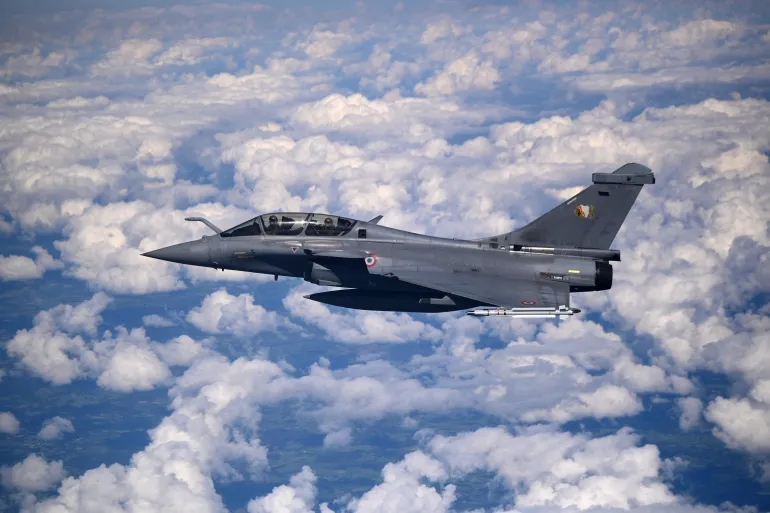India signed a deal with France on Monday to purchase 26 Rafale fighter aircraft, valued at 630 billion rupees ($7.4 billion), the Indian defense ministry announced. The jets, manufactured by Dassault Aviation, represent a key expansion of India’s growing military ties with France, which is already New Delhi’s second-largest arms supplier.
Under the agreement, India will receive 22 single-seater Rafale Marine jets and four twin-seater trainer variants. These aircraft are specially designed for naval operations, capable of taking off and landing from aircraft carriers using features like reinforced landing gear, tailhooks, and advanced avionics suited for maritime missions.
“The delivery of these aircraft would be completed by 2030, with the crew undergoing training in France and India,” the ministry said. It also noted that the deal is expected to generate thousands of jobs and substantial revenues for a wide range of companies involved in production, support, and maintenance.
The decision to go ahead with the purchase was cleared earlier this month by India’s security cabinet, chaired by Prime Minister Narendra Modi, Reuters reported. It reflects India’s strategic intent to enhance naval aviation capabilities and reduce reliance on aging platforms that are increasingly seen as outdated for modern threats.
India’s naval aviation fleet currently relies heavily on Russian-origin MiG-29K jets, which have faced operational challenges, including maintenance issues and lower-than-expected serviceability rates. In contrast, the Rafale Marine is seen as a combat-proven, technologically advanced platform that can provide India’s aircraft carriers with greater strike capabilities, endurance, and interoperability with other Western military systems.
Beyond equipment modernization, the acquisition is part of a broader Indian strategy to modernize its armed forces, lessen dependency on Russian military hardware, and increase domestic defence production. These goals have become even more urgent given India’s ongoing security concerns along its disputed borders with China and Pakistan.
The Indian navy has repeatedly raised concerns over China’s expanding presence in the Indian Ocean, pointing to Beijing’s use of dual-purpose civilian-military vessels in the region and the establishment of a military base in Djibouti since 2017. For India, securing maritime dominance is seen as critical to protecting vital trade routes and maintaining regional influence.
The Rafale deal also strengthens India’s long-standing reliance on French military technology. Past major acquisitions from France include Mirage 2000 fighter jets procured in the 1980s and Scorpene-class submarines ordered in 2005, reflecting decades of defense cooperation.
With delivery expected by the end of the decade, the new Rafales are anticipated to be deployed on India’s indigenously built aircraft carrier, INS Vikrant, offering a crucial leap forward in India’s maritime air power.






